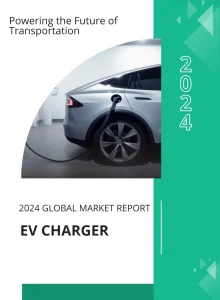What is a 7kW EV Charger? Understanding Its Functionality
As electric vehicles (EVs) continue to gain popularity, the importance of understanding EV charging systems becomes paramount. One significant player in this realm is the 7kW EV charger. This section explores what a 7kW EV charger is, how it works, and its role in the EV charging landscape.
Defining the 7kW EV Charger
A 7kW EV charger refers to a type of Level 2 charging station that delivers power at a rate of 7 kilowatts. It is commonly used for residential and commercial purposes, enabling drivers to charge their electric vehicles more efficiently than lower-powered chargers. But what does a charging rate of 7kW actually mean?
- Power Output: The term ‘7kW’ indicates the maximum power the charger can deliver to an EV. This is sufficient for most electric vehicles, providing a balanced charging speed without overwhelming the vehicle’s battery.
- Charging Time: Typically, a 7kW charger can charge an average EV from 0 to 100% in approximately 6 to 8 hours, making it ideal for overnight charging at home.
How Does a 7kW EV Charger Work?
To understand the functionality of a 7kW EV charger, it’s essential to explore the underlying technology. A 7kW charger works by converting alternating current (AC) from the grid into direct current (DC) that the electric vehicle’s battery can store.
- AC to DC Conversion: The charger contains an onboard unit that converts AC power to DC. This conversion is crucial, as EV batteries require DC power for charging.
- Communication with the Vehicle: The charger communicates with the vehicle to assess battery condition, charge status, and necessary charging levels, ensuring optimal charging efficiency.
Advantages of Using a 7kW EV Charger
The 7kW EV charger offers several advantages that appeal to homeowners and businesses alike.
- Faster Charging: Compared to standard 3.6kW home chargers, a 7kW charger can significantly reduce the time necessary to charge an electric vehicle.
- Convenience: Home installation allows for easy, at-your-convenience charging, especially for those who have a Regular nighttime parking routine.
- Compatibility: Most modern electric vehicles are compatible with 7kW chargers, making them a versatile choice for various car models.
- Cost-Effective: While the initial investment for a 7kW charger may be higher than lower-powered options, the long-term savings in energy efficiency and reduced charging times can make it a wise financial choice.
Considerations Before Installing a 7kW EV Charger
Although a 7kW EV charger presents numerous advantages, potential users should consider a few critical factors before installation:
- Electrical Infrastructure: Ensure that your home’s electrical system can support the installation of a 7kW charger, as it may necessitate upgrades.
- Permits and Regulations: Check local zoning laws or regulations regarding EV charger installation to avoid unexpected compliance issues.
- Space Requirements: Determine the appropriate location for the charger, ensuring it’s conveniently positioned for vehicle access.
In conclusion, a 7kW EV charger is a powerful, convenient, and efficient option for charging electric vehicles at home or in commercial spaces. It not only provides faster charging times but also plays a critical role in improving overall user experience with electric vehicles. Understanding its functionality and benefits can help EV owners make informed choices about their charging solutions.
How a 7kW EV Charger Compares to Other Chargers
As electric vehicles (EVs) grow in popularity, understanding the different charging options available becomes increasingly important. Among these options, the 7kW EV charger is a common choice for residential and commercial use. In this section, we will compare the 7kW charger with other charging levels, specifically the 3.7kW and 22kW chargers, to illustrate where it stands in the charging hierarchy.
Charging Power and Speed
The primary differentiator between various EV chargers is their power output, measured in kilowatts (kW). This power output directly impacts how quickly an EV can charge. Here’s how the 7kW charger stacks up against its counterparts:
- 3.7kW Charger: This is the slowest type of common charger, typically used for home charging. It can add about 10-15 miles of range per hour, making it sufficient for overnight charging.
- 7kW Charger: The 7kW charger doubles the speed of a 3.7kW charger, providing about 20-30 miles of range per hour. This makes it ideal for both home and workplace environments, especially if you need to recharge your vehicle during the day.
- 22kW Charger: Designed for commercial use or fast charging, a 22kW charger can provide 60+ miles of range per hour. It’s perfect for locations where time is of the essence, like shopping centers or public charging stations.
Best Use Cases for 7kW Chargers
Understanding when to use a 7kW charger is crucial for maximizing its benefits. Below are some ideal use cases:
- Home Charging: A 7kW charger is a practical option for home installation, especially for those who can park their EVs in a garage or a dedicated space.
- Workplace Charging: Companies can benefit from installing 7kW chargers for employee use, allowing them to recharge during work hours.
- Short Stops: If you’re on a quick errand and need to top up your battery, a 7kW charger offers a good balance between time and efficiency.
Cost Considerations
The cost of installation and equipment can significantly impact your decision. Here’s how the costs generally compare:
- 3.7kW Chargers: Usually cheaper to purchase and install, making them appealing for budget-conscious consumers.
- 7kW Chargers: They sit in the mid-range concerning cost. While installation is a bit more than a 3.7kW, the quicker charging capabilities often justify the expense.
- 22kW Chargers: Typically the most expensive option, both in terms of equipment and installation. They often require significant electrical upgrades, which can increase overall costs.
Final Thoughts on 7kW Chargers
The 7kW EV charger strikes a commendable balance between speed, cost, and practicality, making it an increasingly popular choice for many EV owners. While it may not charge as quickly as a 22kW charger, its efficiency in a home or workplace setting provides substantial benefits, especially for those who drive an electric vehicle daily. Ultimately, the decision will depend on individual needs, usage patterns, and budget considerations. No matter your choice, investing in the right charger will enhance your electric vehicle experience and contribute positively to the growing trend of sustainable transportation.
Benefits of Using a 7kW EV Charger at Home
As electric vehicles (EVs) continue to gain popularity, the need for convenient and efficient charging solutions becomes increasingly important. One of the most effective options for home charging is the 7kW EV charger. This section explores the many benefits of utilizing a 7kW EV charger at home, helping you make an informed decision about your charging setup.
Faster Charging Times
The primary advantage of a 7kW EV charger is its ability to provide faster charging times compared to standard 3kW chargers. This means you can get your EV charged up more quickly, allowing for greater convenience in your daily routine. Here’s why faster charging matters:
- Reduced downtime: Spend less time waiting for your vehicle to charge.
- Increased range: Charge your vehicle overnight and wake up with a full battery.
- Flexibility: Adapt to your driving habits more easily, ensuring you always have enough power for unexpected trips.
Cost-Effectiveness
Investing in a 7kW EV charger can actually save you money over time. Here are some of the financial benefits:
- Lower energy costs: Charging during off-peak hours may reduce your electricity bills.
- Incentives: Many governments and utility companies offer incentives for installing EV chargers, reducing your upfront costs.
- Increased home value: As EV adoption rises, having a home charging solution can enhance your property’s marketability.
Environmental Impact
Switching to an electric vehicle and installing a 7kW charger at home can contribute positively to the environment. Here’s how:
- Reduced emissions: Electric vehicles produce zero tailpipe emissions, leading to improved air quality.
- Renewable energy integration: Charging during off-peak times often coincides with increased renewable energy production, such as wind and solar.
- Support for sustainability: Owning an EV aligns with green initiatives, supporting a transition to a more sustainable society.
Enhanced Convenience
Imagine never having to visit a gas station again. With a 7kW EV charger installed at home, convenience is one of the standout benefits:
- Home charging: Charge overnight while you sleep, so your vehicle is ready to go each morning.
- Reduced range anxiety: Knowing you have a reliable home charging solution provides peace of mind.
- Control over your energy usage: Monitor and schedule charging based on your needs and preferences.
In conclusion, utilizing a 7kW EV charger at home provides numerous advantages, including faster charging times, financial savings, positive environmental impacts, and unmatched convenience. As electric vehicles continue to reshape the automotive landscape, having a suitable charging solution becomes not just beneficial, but essential for EV owners looking to enhance their driving experience. By investing in a 7kW charger, you are not only ensuring a practical and efficient charging process, but you are also taking an important step towards a more sustainable future.
What is the Cost of Installing a 7kW EV Charger?
As electric vehicles (EVs) continue to rise in popularity, many car owners are considering the practicality of home charging solutions, particularly the 7kW EV charger. Understanding the installation costs associated with this kind of charging unit can help consumers make informed decisions about their investments in EV technology.
Factors Influencing Installation Costs
The cost of installing a 7kW EV charger can vary widely based on several key factors. Here are some of the most significant considerations:
- Charger Unit Price: The cost of the 7kW EV charger itself typically ranges from $400 to $1,200, depending on the brand, features, and whether it includes a cable or other accessories.
- Electrical Upgrades: If your home’s electrical system is outdated or insufficient to support a 7kW charger, you may need to invest in upgrades, which can cost anywhere from $500 to $3,000.
- Labor Costs: Hiring a licensed electrician for the installation is crucial. Labor costs can range between $50 to $150 per hour, and the time required for installation can vary based on the complexity of the job.
- Permitting Fees: Some areas may require permits for EV charger installations, which can incur additional fees, typically ranging from $50 to several hundred dollars.
- Location of Installation: The complexity of the installation site—whether it’s a garage, an open parking space, or a distant location from the main electrical panel—can greatly affect the overall cost.
Estimating Total Installation Costs
When calculating the total cost to install a 7kW EV charger, it’s important to consider all the factors mentioned above. Here’s an estimated breakdown:
- Charger Unit: $400 – $1,200
- Electrical Upgrades: $500 – $3,000
- Labor Costs: $300 – $600 (assumes 2-4 hours of work)
- Permitting Fees: $50 – $200
Overall, the total installation costs can range from approximately $1,300 to upwards of $5,000. While this may seem like a significant upfront expense, many EV owners find that the convenience and savings from charging at home quickly offset the initial investment.
Potential Savings Over Time
Investing in a 7kW EV charger can lead to substantial savings over time, including:
- Lower Fuel Costs: Charging your EV at home is often cheaper than refueling with gasoline, especially if you can take advantage of off-peak electricity rates.
- Increased Property Value: A home equipped with an EV charging station may appeal to future homebuyers, potentially increasing your property value.
- Government Incentives: Many regions offer rebates or tax incentives for installing EV chargers, which can help offset installation costs.
In conclusion, while the initial cost of installing a 7kW EV charger can seem daunting, understanding the various factors that contribute to these costs can help you make a well-informed decision. With proper planning and awareness of available incentives, EV owners can turn their home into a convenient and economical charging hub, reflecting the growing trend toward sustainable transportation.


